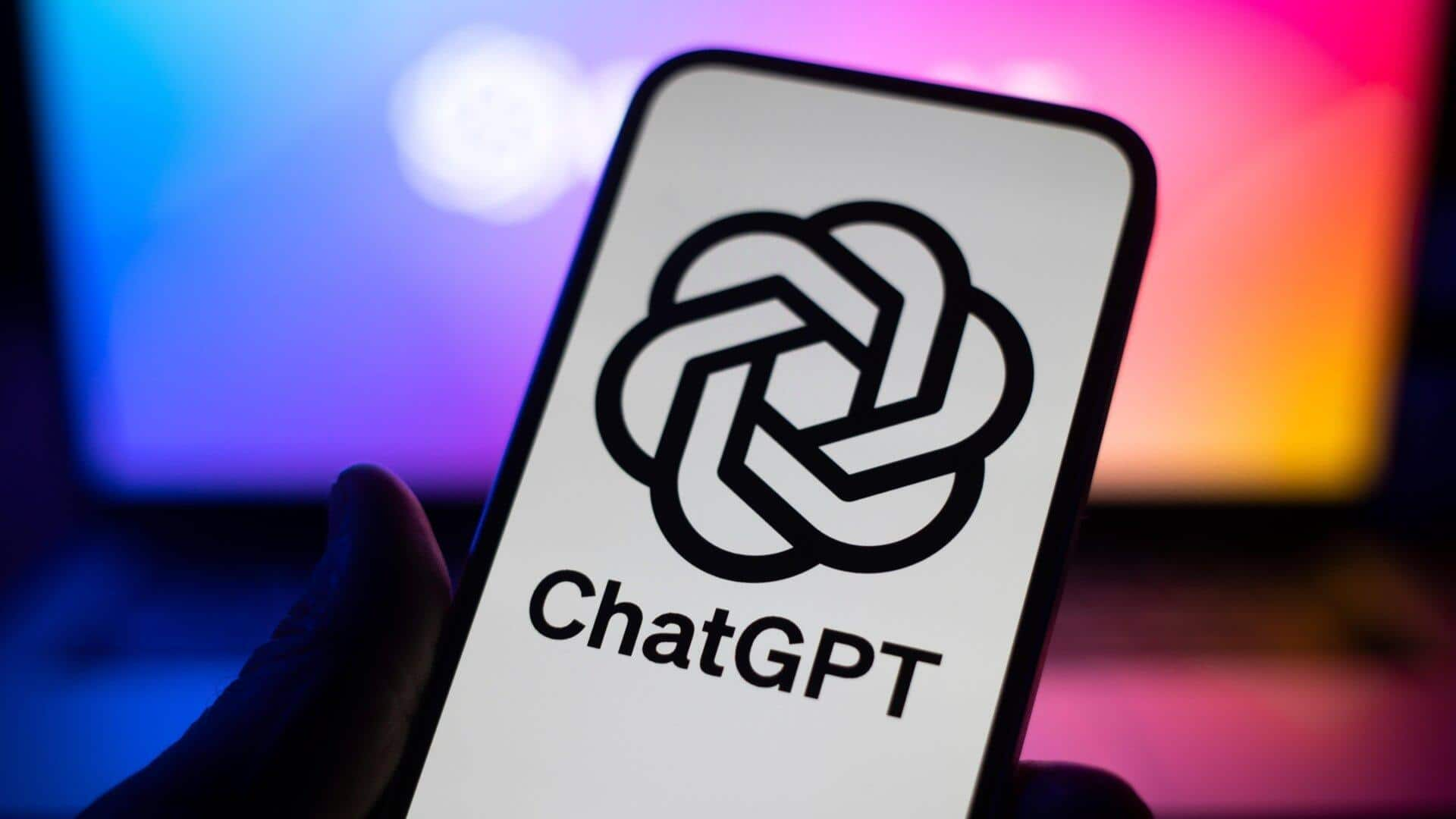
ChatGPT might be eroding your creativity and critical thinking: MIT
What's the story
A recent study conducted by researchers at the Massachusetts Institute of Technology (MIT) has raised concerns about the effects of artificial intelligence (AI) tools, such as ChatGPT, on human cognition. The research found that using these tools can lead to reduced brain activity and lower mental engagement in tasks requiring memory, creativity, and concentration.
Research methodology
How the study was conducted
The study involved 54 participants aged between 18 and 39 years. They were divided into three groups: one that used ChatGPT to generate answers, another that relied on Google Search for information, and a third that worked without any tools at all. Each participant wore a headset during the task to measure their brain activity across 32 areas of the brain.
Findings
Participants who used ChatGPT showed lower brain activity
The results of the study were clear: participants who used ChatGPT showed significantly lower brain activity than those who relied on Google Search or worked without any tools. The team behind the research included Dr. Nataliya Kosmyna and her colleagues Ashly Vivian Beresnitzky, Ye Tong Yuan, Jessica Situ, Eugene Hauptmann, Xian-Hao Liao, Iris Braunstein, and Pattie Maes.
Cognitive impact
'Red flag,' says Dr. Kosmyna
When asked to rewrite one of their essays without any tools, those who used ChatGPT struggled. Many couldn't remember their original arguments or structure. This was because they hadn't processed the material deeply enough the first time around. Dr. Kosmyna called this a "red flag," noting that while using AI was efficient, nothing was integrated into their brains during the process.
Long-term effects
AI overuse already seen in younger people
Dr. Zishan Khan, a psychiatrist working with students, has already seen signs of AI overuse in younger people. He warned that the neural pathways responsible for thinking, remembering, and adapting are weakening due to early and frequent reliance on tools like ChatGPT.This could lead to long-term cognitive decline in developing brains. The MIT team is now expanding its research to see how AI affects people in other fields, such as coding with GitHub Copilot.
Educational implications
Researchers share findings before full peer review process
The MIT researchers shared their findings before the full peer review process, which is unusual in academic research. They are concerned about the potential impact of AI tools like ChatGPT on young brains and education. Dr. Kosmyna warned against introducing such technology into kindergarten classrooms, calling it a "terrible mistake." The team also demonstrated how easily complex research can be misrepresented by planting subtle factual "traps" in their study that were often missed by ChatGPT's summarization.